“Bomb Girls is unusual in several ways. For one thing, the four lead characters are women. Happily, MacLennan has a special affinity for creating female roles. The main trick, he says, is to avoid making them much different than male roles. Rather than portraying them as peripheral or sexually objectified, MacLennan’s women display depth, complexity and intelligence.”
In this excerpt from an article released to promote the second season of Bomb Girls, we see Michael MacLennan answering that age-old question: How do you write strong female characters? This may be one of my favourite questions asked of writers, simply because the answer is -- and always will be -- “treat them like human beings.”
However, MacLennan goes further. He suggests that women should be the focal point of their own stories, and that they should be portrayed as subjects, not objects. By figuring his show in opposition to the overwhelming majority of television and film, he shows that he and his writing staff are highly cognizant of what’s at stake. Mainstream media is quick to dismiss women’s stories, and studio executives tend to view the success of women-focused pieces as either a fluke or the result of employing typically masculine narrative tropes. (Case in point: any and all recent films in which women characters suddenly become knights.) If Bomb Girls had failed, its failure would likely have been seen to reflect not on the relative appeal of one show but on the validity of women-centered stories in general.
So it seems as if the creators decided to go big or go home. Instead of merely writing real, strong female characters, they chose to use this opportunity to critique the mainstream media’s portrayal of women and expose the social falsehoods that produce these flawed depictions. Whereas the treatment of Gladys and Vera explored the societal double standards that existed in the 1940s and continue to dominate our thinking today, the portrayal of Kate and Betty addresses the way in which media filters reality for mass consumption.
Kate Andrews
The very first thing we see in Bomb Girls is a shot of a woman’s legs. It’s a familiar image, recurring in films and television shows across decades. It’s not a new idea to begin a piece with an extended act of objectification; it is, however, pretty novel to have the person looking at these legs be a woman.
We are introduced to Marion Rowley on a street corner, singing hymns with her family and unsuccessfully hiding her interest in those legs. She is a preacher’s daughter, and when the preacher notices her noticing people -- a man, in this case -- he immediately turns to deliver his sermon to his ostensibly wayward daughter. To ensure that his message gets across, he grabs her hand in a punishing grip. The next time we see her, later in the introductory montage, Marion and her mother are making final preparations for her escape, a feat accomplished with her father’s assurances of her damnation ringing out behind her. And so Kate Andrews is born.
Kate is, arguably, the nicest character. When Edith gets word of her husband’s death, Kate attempts to soothe the nervous tension in the factory by singing Irving Berlin’s “It’s a Lovely Day Tomorrow.” When Gladys investigates Hazel Macdougall, she volunteers to accompany her and urges Betty to do the same. Having withstood her father’s destructive influence, it seems as if Kate has decided to become his opposite.
She further accomplishes this by breaking down the restrictive boundaries her father established. In the first episode, this is demonstrated quite subtly; whereas her father punished her for her appreciative gaze, now she openly looks. She sees two women dancing and asks Betty for a twirl, breaking a social taboo. She regards Gladys’ silk stockings -- yet another woman’s legs -- and asks to touch them. By taking these seemingly innocuous actions, she begins the process of actively engaging with a world that she was previously banned from seeing, much less enjoying.
While learning to exist beyond her father’s carefully constructed walls, Kate also demonstrates the ability to see the similarly arbitrary nature of certain social rules. When Lorna suspects Kate of theft, she assigns her to the storeroom, a vast, dark space that seems devoid of life until Kate hears a male voice singing. Looking for the owner of the voice in the canteen, she alerts a White male worker to her presence in the storeroom. He later attempts to rape her. In a subversion of the Birth of a Nation-style trope of Black masculinity violating White femininity, the owner of the voice, an African-Canadian man named Leon, saves her. While Betty cautions her to avoid Leon, arguing for the bigoted belief that he was merely saving her for himself, Kate spends much of the next two episodes seeking him out.
An argument could certainly be made that Kate displays a tremendous amount of privilege in constantly trying to converse with Leon in public, as it would be him who most likely suffered for the transgression. At the same time, however, this can be seen as a positive step in Kate’s progression toward becoming her own person. Harbouring little to no negative sentiment toward “Negroes,” she is unwilling to obey societal rules that dictate the people with whom she can and cannot converse. In this way, she is markedly more open-minded than Betty, whose racist attitudes can be only partially explained -- and certainly not excused -- by her fear that Kate is more attracted to Leon than to her.
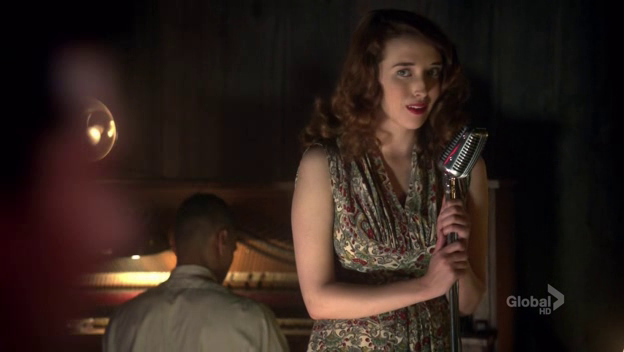 Leon
is much more than mere evidence that Kate can disobey rules. Beyond his
value as an intriguing -- if somewhat underdeveloped -- character in
his own right, Leon is Kate’s gateway to music, and music is Marion’s
gateway to Kate. As Marion, Kate was raised with religious music, but it
is through Billie Holiday’s work (and Leon’s recommendation) that she
becomes empowered by her singing. She appears to identify with the
singer to the point of projection, interpreting Holiday’s musical
stylings as the message, “Don’t judge me. We all have our secrets.” She
sees in a musical career the potential to find happiness and proudly
plans to pursue it despite the risk of failure: “I found something I
love. I don’t care if I fall on my face.” Singing allows her to assert
her desires, giving both literal and figurative voice to her new goals.
Leon
is much more than mere evidence that Kate can disobey rules. Beyond his
value as an intriguing -- if somewhat underdeveloped -- character in
his own right, Leon is Kate’s gateway to music, and music is Marion’s
gateway to Kate. As Marion, Kate was raised with religious music, but it
is through Billie Holiday’s work (and Leon’s recommendation) that she
becomes empowered by her singing. She appears to identify with the
singer to the point of projection, interpreting Holiday’s musical
stylings as the message, “Don’t judge me. We all have our secrets.” She
sees in a musical career the potential to find happiness and proudly
plans to pursue it despite the risk of failure: “I found something I
love. I don’t care if I fall on my face.” Singing allows her to assert
her desires, giving both literal and figurative voice to her new goals.Music is Kate’s chosen form of self-expression. As she observes in the sixth episode, “You know, I used to sing to feel something. Now it’s more like I feel something and I sing.” As Marion, she was so divorced from her own emotions that she had to experience them vicariously, employing other people’s words in order to access other people’s feelings. As Kate, she has broken through this barrier and finds herself able to experience and express her own emotions, relying on the words of others merely to lend some order to her newly liberated feelings. It’s the difference between false Hallmark sentiment and a sonnet by Neruda.
In the most effective instance, however, it’s actually a song by Ralph Rainger and Dorothy Parker called “I Wished on the Moon.” Kate directs her performance toward Betty, her sort-of love interest and number one cheerleader. Despite this dedication and a number of other indicators of attraction on Kate’s end, her true feelings about Betty are left frustratingly ambiguous. What is perhaps even more frustrating is the fact that that is precisely how things should be. Kate has had any possibility of a healthy relationship to her sexuality quite literally beaten out of her. Although she has pushed her way into a world where she can physically look and touch, her new freedoms cannot completely obliterate the old, ingrained psychological restrictions.
We see her struggle with these internal blocks on several occasions, most notably the photoshoot with Betty’s associate, Chet. In order to secure papers for her new identity and render valid the person of Kate Andrews, Kate agrees to do a pin-up photoshoot. When she expresses reservations, Betty encourages her, stating that she has a “new name, new job, new life.” Marion cannot pose seductively, but Kate must, if only to establish herself as the new person she needs to become.
Here we see the matter of the gaze pop up again. Initially, Chet is figured as the bearer of the gaze, the traditional male viewer who controls the mode of objectification in the form of the camera. However, the gaze soon shifts to rest with Betty, who watches Kate from next to the camera, encouraging her to try flirty poses. Betty helps Kate to access a heretofore unknown sexy side, and she does it by treating her like a human being. Unfortunately, the status quo is restored when we are again made aware of the presence and power of the male gaze, with Chet’s charming observation that “Kate Andrews is going to be comforting a lot of lonely servicemen.” It is a harsh reminder that the performance that Betty and Kate collaboratively produced will ultimately benefit men who think of the woman in the picture as nothing but a sexual object.
What helps to temper this brutal realization is the restoration of the queer female gaze. In her final scene of the episode, Betty sits on her bed, cross-legged, perusing Kate’s photos. She appears to view them with just as much sexual interest as the men, but the difference lies in her familiarity with the subject of the photographs: she is interested in Kate as a person, and the pictures merely allow her to enjoy her image. These looks were directed at her just as they were directed at the camera.
Unfortunately, Betty is not the only person who recognizes the person in the photos, as Kate’s father uses them to track her down. Despite leaving her father behind, Kate does not entirely escape him. If Gladys’ boundaries are societal, Kate’s are paternal. He is the towering figure in her life, the one true authority to which she turns when she seeks guidance, as evidenced by her tendency to quote her father when she is in need of an adage. He is her tormentor and warden, forcing her to adhere to his unconscionable moral code. Ever-vigilant and ever-present, he is an almost supernatural being, a corrupted god produced by Kate’s fear.
When he arrives, the show suggests that he may be a paranoia-produced apparition, a flashback like the one that featured a helpless Kate looking on as Marion was nearly drowned by her father’s hand. He soon proves himself all too real, and his influence immediately starts seeping back into Kate’s life despite her insistence that she would rather kill herself than return to him. Still, the signs that she is slipping back into her earlier identity are abundant. “You honestly think your father would rather hurt you than see you happy?” she inquires of Gladys, as if she didn’t have ample experience of this kind of paternal control. She apologizes for her father’s behaviour, telling Leon that “he worked so hard to find [her], [her] father, so very sorry for what he’d done.” She is justifying her decision to return home even before we learn that she has made the decision.
When Kate leaves the boarding house, her regression is complete; the show makes this explicit by having Kate respond to the use of her new title with “My name’s Marion.” She rejects Betty’s assertion that she has freedom in a new life, dismissing both the quality of that life -- “What kind of life? I make things that kill people, I debase God’s gift, I sing in dens of sin, I drink, smoke, consort with deviants” -- and the idea that she acted of her own free will -- “I was seduced.” All of this comes across as an impressive act of ventriloquy, as Kate speaks the words that her father likely used to undermine her new self. Still, her delivery is hardly robotic, even if we may have to wait whole seasons to identify the emotion that causes her voice to break when she tells Betty that she never wanted her. It is this emotion that suggests that Kate has not been completely eradicated to make room for Marion; this woman still feels.
Many viewers of the show argue that Kate’s decision to return to her father in the final episode of the first season shows her to be weak. I contend, however, that there is basically no way in which Kate can be seen as weak. She survived traumatic physical, emotional and psychological abuse and managed to escape with only the help of her similarly abused mother. She forged a new identity (sometimes literally) and sought to make Kate Andrews a happier, more complete person than Marion Rowley had ever been. She did things that terrified her, simply because they had to be done. She also went back to her abuser because she needed to tend to her sick mother. She is anything but weak.
Verdict: Actual strong female character
Betty McRae
"In terms of the story I wanted to tell of [Betty], it was not of somebody who understood herself and could identify or have the language to come out, per se," MacLennan said. "Rather somebody, like many women at the time, who is discovering herself. And discovering her kind of, what sets her heart ticking. I think she's somebody whose [sic] been very guarded until this sort of transformative force comes along in the shape of Kate Andrews."
Betty is a young woman from the Prairies who fears the threat of German U-boats from any and all bodies of water. Betty is a master practitioner of the carefully careless lean. Betty is the best worker at Victory Munitions. And Betty, despite lacking the vocabulary to identify herself thusly, is very, very gay. Accordingly, her first season storyline revolves around the difficulties of being a queer person in the 1940s.
Betty’s secret is a strangely open one and she herself appears on paper as something of a stereotype. She wears trousers, keeps her hair short, and has a typically masculine gait. Raised on a farm before she moved to Toronto, she comes from a family of brothers and, as MacLennan suggested in the same interview already quoted, she is “really only comfortable in a male milieu.” She’s one of the guys, and now, faced with the prospect of a few years spent surrounded by women, she has to learn to adjust.
She is also one of the only women in the factory who is used to doing manual labour as a job, and it shows in her status in the factory. Not only is she the best bomb-maker on the line, but Betty is entrusted with training the new workers. She introduces them to their new jobs with a telling pep talk: “Here’s the deal, ladies: you do fine embroidery, you can assemble a time fuse. If you sew buttons, you can thread a detonator. If you can pour tea, you can pour amatol. It’s no big whoop. Except some folks don’t see it that way, and the guys are crapping bullets, afraid they might not get their easy street jobs back after you’ve helped them win the war. You ignore ‘em first, talk tough second... That doesn’t work? You slap ‘em silly.” In one speech, she dismantles the hierarchical value structure of gendered work, showing that women’s domestic tasks and men’s public jobs are differentiated by nothing more than the materials used. She also reminds the women that they have a right to defend themselves against disparaging comments, even offering violence as a possible tool. She wants to instill confidence in her co-workers.
However, after the bad bomb test, Betty proves herself somewhat unwilling to challenge the status quo. When the women are blamed for the bad bomb, she offers suggestions to improve their work environment. Still, she does not support Gladys’ attempt to stand up to Harold Akins. Instead, she dismisses their valid concerns as just talk, “like women do.” Confronting individual male workers is fine, but challenging the system itself is unthinkable.
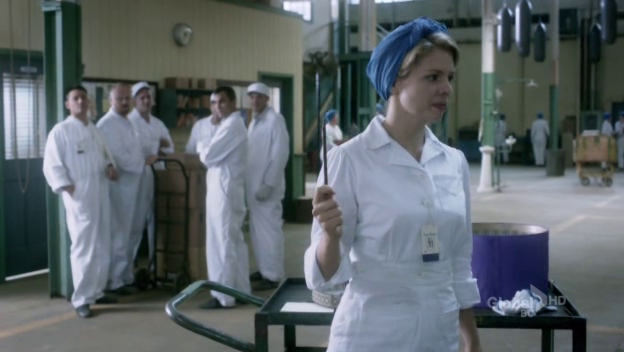 It
is completely unthinkable, until Gladys Witham comes along with her
suggestion hatbox. When the male workers read out the lewd, insulting
suggestions with which they filled the box, they allow Betty to see the
act of challenging the system as an opportunity to tell off the men
whose behaviour, in and of itself, is a threat to workplace safety.
Whereas Gladys is somewhat chastened by seeing her tool of empowerment
become a weapon of oppression, Betty is spurred into action. She realizes
that allowing the men to bully Gladys in this way will lead to them
pressing their advantage and tormenting the rest of the women. So she
steps forward and uses the box for its intended purpose, stating, “These
pinheads think we should work six days a week and never have an idea in
our pretty little heads about how to do our own damn job.” It’s a
matter of pride; Betty might not buy into Gladys’ grand feminist ideals,
but she’ll be damned if she lets a bunch of knuckle draggers tell her
she doesn’t know how to do her job.
It
is completely unthinkable, until Gladys Witham comes along with her
suggestion hatbox. When the male workers read out the lewd, insulting
suggestions with which they filled the box, they allow Betty to see the
act of challenging the system as an opportunity to tell off the men
whose behaviour, in and of itself, is a threat to workplace safety.
Whereas Gladys is somewhat chastened by seeing her tool of empowerment
become a weapon of oppression, Betty is spurred into action. She realizes
that allowing the men to bully Gladys in this way will lead to them
pressing their advantage and tormenting the rest of the women. So she
steps forward and uses the box for its intended purpose, stating, “These
pinheads think we should work six days a week and never have an idea in
our pretty little heads about how to do our own damn job.” It’s a
matter of pride; Betty might not buy into Gladys’ grand feminist ideals,
but she’ll be damned if she lets a bunch of knuckle draggers tell her
she doesn’t know how to do her job.As the wealthy outsider, Gladys could not gain support for her suggestion box, but Betty, the star worker, convinces every woman on blue shift to make their voices heard. She also refuses to let Gladys take the blame, pulling a sort of “I am Spartacus” show of solidarity when Lorna demands to know who is responsible. What is particularly notable about this scene is the way in which it is framed within the episode. When Gladys began her unsuccessful crusade, Kate informed her that her failure was a sign that “nobody wants a Joan of Arc to lead us to battle.” After a working class woman steps up to lead, however, she assumes just this role. Gladys makes this explicit by referring to Betty as “our Joan of Arc.” In her moment of rebellion, Betty becomes a heroic figure.
The heroic narrative clings to Betty throughout this first season. When she is selected to star in a newsreel, Kate calms her nerves by telling her that “they’re all gonna see what [Kate] see[s]: a hero.” Even in the final scene of the season, when Gladys suggests that they will work together to find Kate, there are narrative underpinnings of a knight going to save her bewitched lady from a scripture-citing dragon. The figuring of a queer woman in this light suggests that the show is doing some deliberate critical work. As I argued in our post about Adventure Time’s Marceline, “when shows refuse to represent LGBTQ people onscreen, they are telling these audience members that they have no place in the world that the show creates. They cannot be heroes or princesses or badass vampires; they can only be silent and invisible.” Bomb Girls not only includes queer people, but explicitly argues for their recognition as heroes.
Because this critical work is carried out so subtly, the show couples it with an explicit critique of LGBTQ media representation. In the fourth episode, Victory Munitions is selected to be featured in a newsreel to recruit women for the bomb factories. Initially, the filmmaker, Russell Joseph, wants Gladys for the role of everywoman bomb maker. The show uses this opportunity to demonstrate the problems inherent in assuming that the women will be attracted to the kind of bomb girl that pleases the male gaze. Lorna points out the flaw in Russell Joseph’s plan: “Just because you’d like to get her out of that uniform and into your little movie, doesn’t mean the average girl will see her and think, ‘That’s me.’” When he responds that he knows how to sell this war, she responds, “To men, maybe.”
Lorna argues that women want to be able to identify with the woman onscreen. She proposes that they select the best worker, and with her recommendation, Betty becomes the model bomb girl. For a person like Betty, well versed in all the reasons why she is not society’s ideal woman, this could be her moment, when what she can do might prove enough to overshadow what she is. Unfortunately, at every step of production, Betty is transformed into an alternate self, one that Joseph assumes is more palatable to the masses. Her face is caked with makeup, her hair carefully coiffed, and her breasts made the centre of attention.
While most of the production focuses on making Betty something she detests, one element makes her fictional self someone she might aspire to be. The film crew does a location shoot at a picturesque, white house, and Betty reveals to Kate that that is what she is saving up for: a house of her own, to be shared with a “housemate.” She wants to take advantage of the opportunities afforded her by the changing social structures to make a life for herself that resembles the perfect white picket fence fantasy that she’s internalized. At the same time, she wants to subvert social norms by reimagining this scenario with a female partner. Unfortunately, her preferred partner has internalized the same image in its original form, responding to Betty’s plan to buy a house with “That’s what husbands are for.” Still, the dream remains, as Kate also agrees to be Betty’s housemate.
When the factory workers sit down to watch the newsreel, Bomb Girls makes its point about the devastating effects of queer erasure on real LGBTQ people. Betty sees that they have edited the scene shot at her dream house to include children running into her arms. To make matters worse, the voice-over states -- to the accompaniment of the male workers’ catcalls and sexual innuendo -- “It’s not just love of country that keeps Betty going, it’s her love of a very special man. Once her husband comes home from fighting Jerry, she’ll be happy to return to her wifely duties.” Like Kate before her, Betty finds that her image has been manipulated to suit the male gaze. In addition, her real identity as a lesbian has been erased in order to reinvent her as a false heterosexual ideal.
In so doing, the filmmakers unknowingly destroy Betty’s dream of a normal life. As she says, “It shows you what a freak I am. They had to make up a whole set of lies about me.” Lorna assures her that women will see her worth as a worker and as a person, and that they will want to be like her. Betty dismisses these words of comfort, stating, “Nobody would want to be me, Mrs. Corbett. Nobody.” Understanding that the fiction is the only acceptable truth, she can no longer see herself as a person worthy of audience identification.
Complicating this critique is Kate’s response. She dismisses Betty’s concerns with her portrayal, telling her that “people just thought it was fun” and thereby presenting the familiar “it’s just a TV show” argument. Betty, however, knows that what is just a TV show is also her life, and she confesses that she would sometimes like to be that person, if only to make her life easier. Kate responds by telling her that “you don’t need everybody liking you, just the ones that matter.” She tries to make Betty understand what she herself has discovered: you don’t have to be or do something just because other people think you should. Kate is reminding Betty that she isn’t her mass-produced image, but a person that other people appreciate.
This is why Kate’s rejection in the final episode is so crushing. Although she answers Betty’s love confession with an assertion that she never wanted Betty, I would argue that it’s the rest of Kate’s speech that causes the most lasting damage. By calling Betty a deviant and claiming that she seduced her, she is expressing the common belief of the time. She disavows knowledge of the actual Betty and condemns her by reducing her to a stereotype. Kate, the person who mattered most, delivers the cruelest blow.
The last time we see Betty and the rest of the bomb girls is in the final scene of the season. Emotionally battered by their romantic losses -- Kate to her father and James to officer training -- Betty and Gladys contemplate their next course of action. Betty’s ruminations take a philosophical turn: “The big promise: that we might actually get the things we want. What if it’s a lie?” By this time, Betty is painfully familiar with the duplicitous nature of desire, as she has had the things she most wants within her grasp only to have them ripped away. Gladys responds to her pessimistic observation, saying that they can’t stop trying and that they’ve got a war to win.
This war, while ostensibly the massive historical conflict around which the show revolves, could just as easily be read as the show’s battle for proper representation. In these final moments, Gladys links her arm with Betty’s and they both confidently stride toward the factory, Edith and Vera joining them. Playing over this proud march is a snippet of “Ain’t Nobody’s Business”: “There ain’t nothin’ I can do, or nothin’ I can say that folks don’t criticize me, but I’m gonna do just as I want to anyway. Ain’t nobody’s business if I do.” In the final shot, set to that final line, we see the four women, arms linked, the picture of female friendship and solidarity. Each one of them has done wonderful and awful things, but in every case they have done what they thought was right.
The season closes as it opened: on the image of women’s legs. This time, however, we know the women as people and know, therefore, that this final nod to objectification is actually a refusal to fall victim to it. These women have earned their subjectivity, and it is therefore particularly telling that the gaze in the last shot is not only not attributed to any character, but is indeed filmed from such an angle that it could not constitute a character’s point-of-view. After all, it ain’t nobody’s business what they do.
Verdict: Actual strong female character
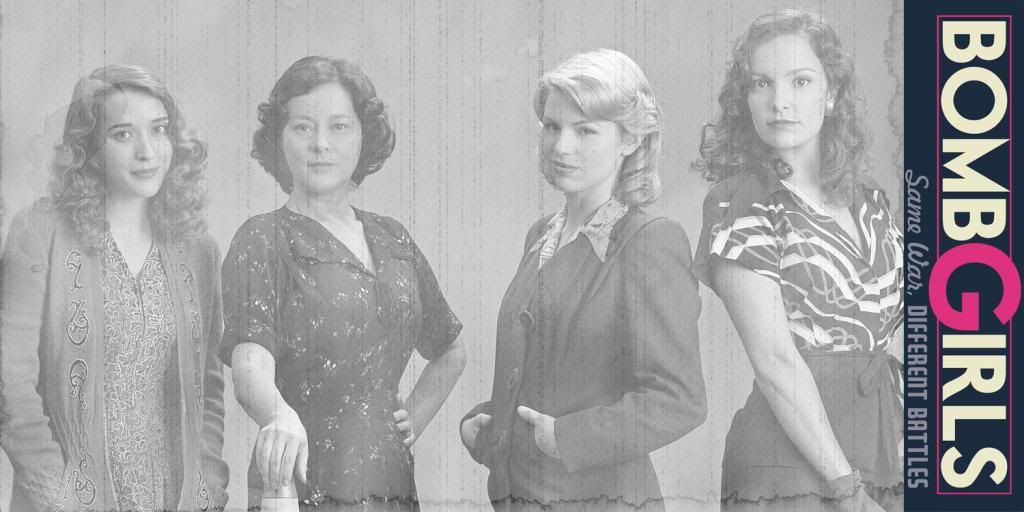
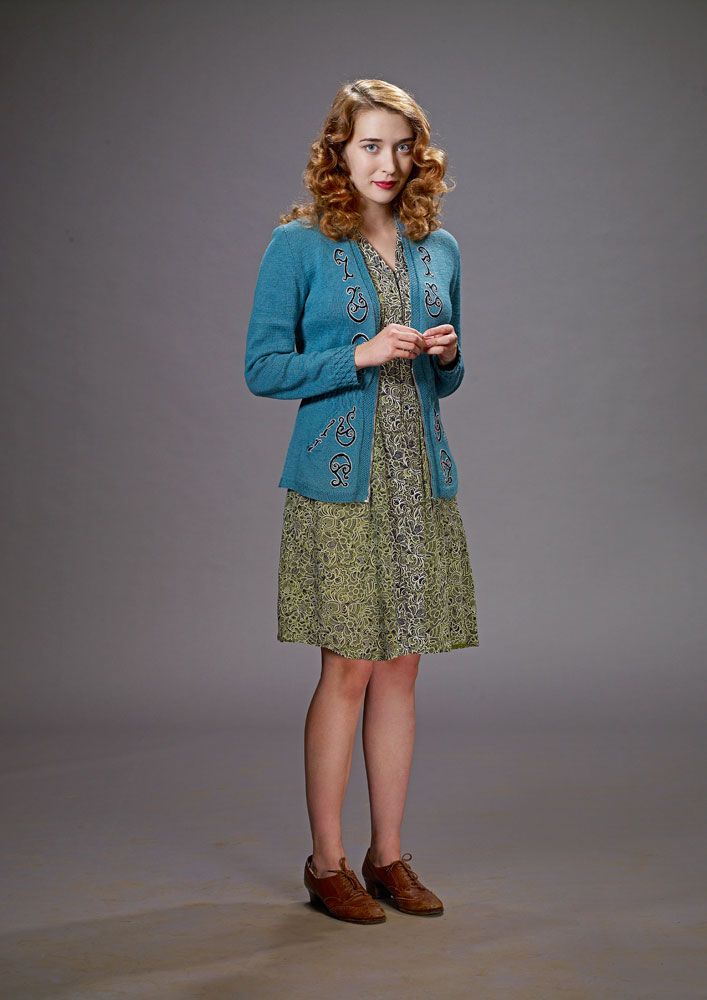

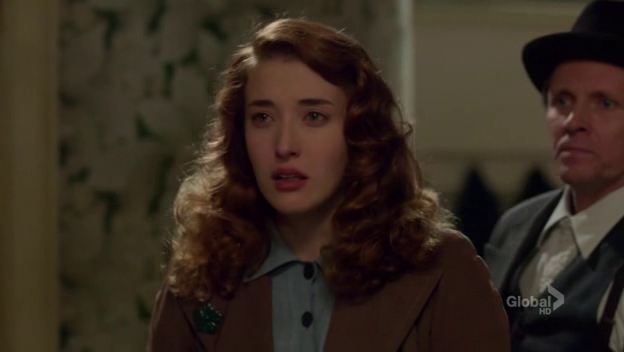
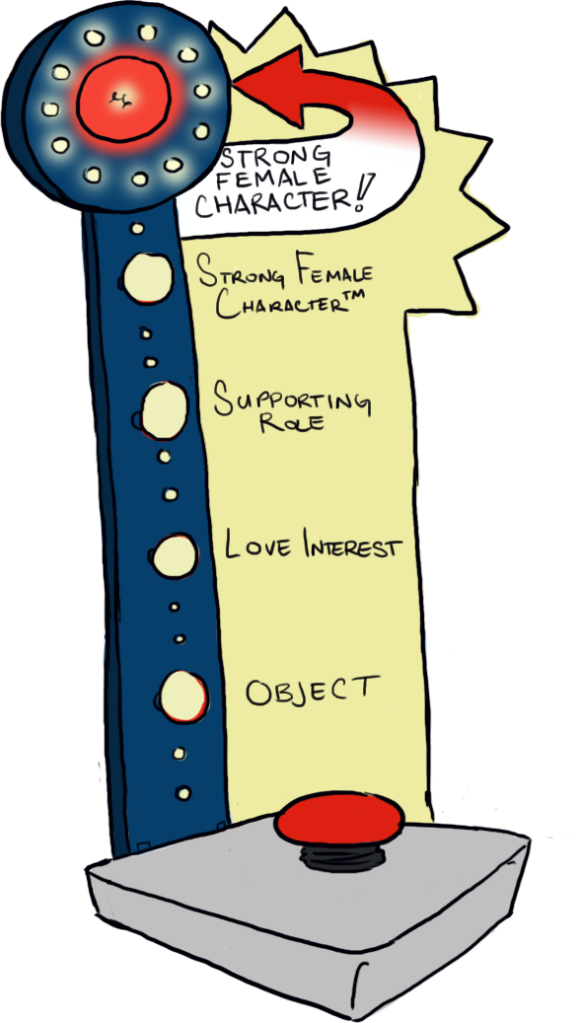
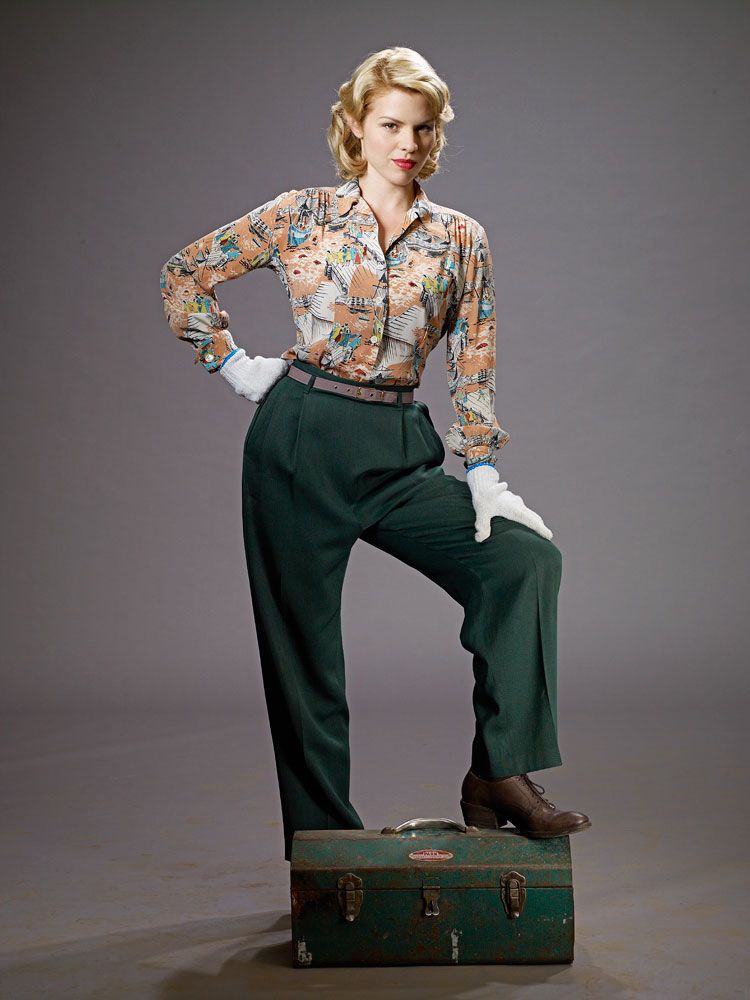
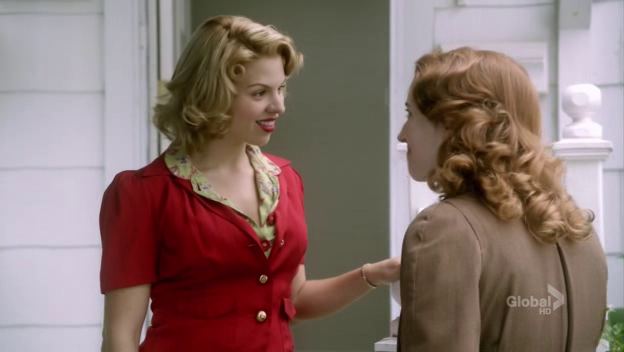
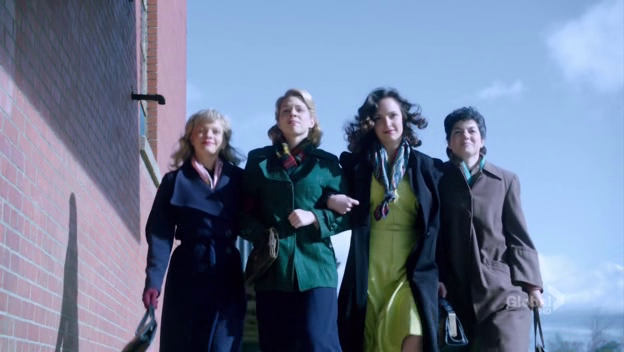
No comments:
Post a Comment